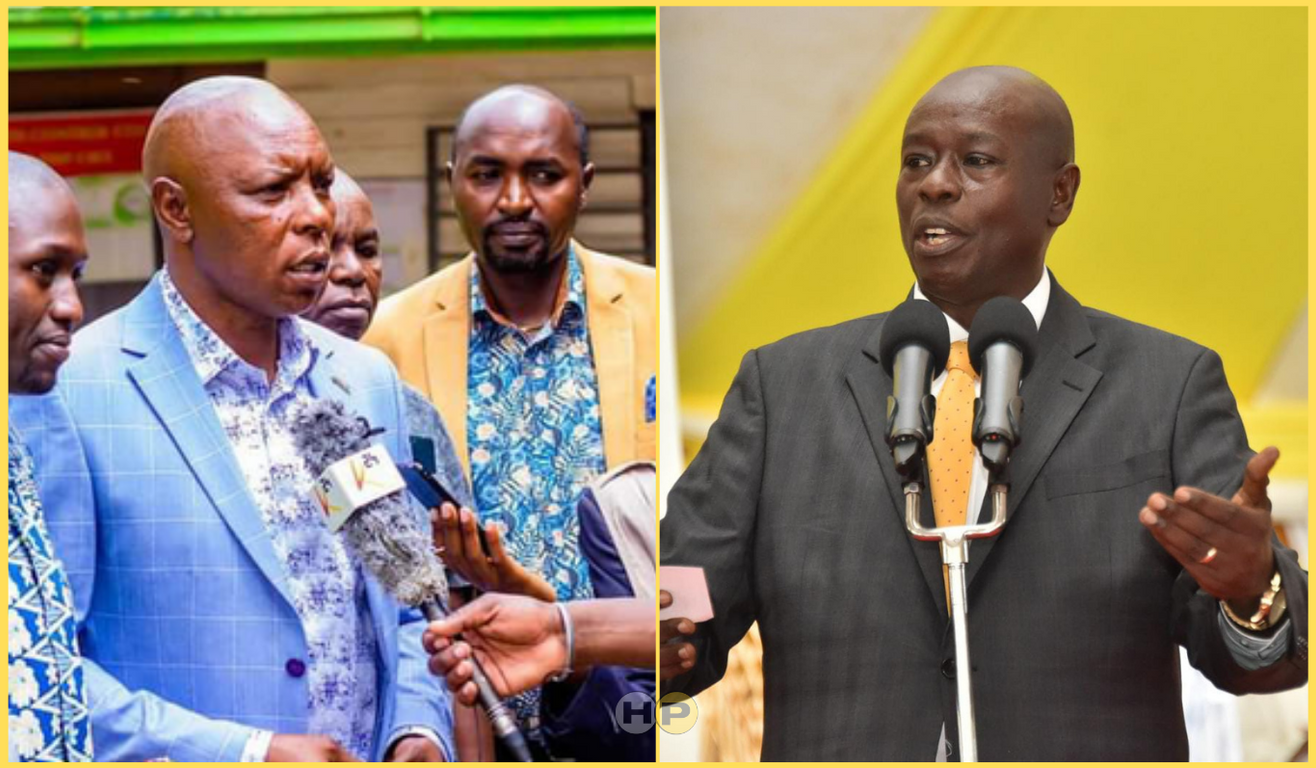Employers have expressed concerns over the approach the government has taken to generate more revenue by proposing new taxes in the Finance Bill, 2023.
The Federation of Kenya Employers notes that the bill will have significant implications for employers and businesses across the country that could result in business closures, job losses, and a slowdown in economic growth.
FKE Executive Director Jaqueline Mugo said the proposals if adopted, will pose a huge burden on taxpayers especially those with multiple transactions.
Mugo accused the government of introducing the new proposals without proper consultation.
The Executive Director asked the government to give businesses adequate time to adjust their budgets before policies are introduced in the labor sector.
“As the voice of employers, we urge the government to consider the impact of the proposed tax hikes on employers, employees and our nation as a whole,” she said.
Here is what Oduor Ong’wen, ODM Executive Director has told Kenyans about Ruto’s crazy taxes to be imposed on Kenyans.
WHAT SHALL THE RUTO REGIME GAIN BY TAXING KENYANS INTO POVERTY?
By Oduor Ong’wen
It is said that only death and taxes are the only certainties known to human beings. It is Benjamin Franklin whose letter popularized this claim although it had appeared much earlier in writings on politics and in a play. Franklin was talking about taxes in the contexts of politics, specifically the Constitution of the United States of America.
Our Constitution allows the government to tax Kenyans. Taxes give the government revenue from which to pay for services, goods, and development. It is nearly impossible to run a government today without taxing the population. But what shall the Kenya Kwanza regime, whose legitimacy remains contested, gain from taxing Kenyans into poverty?
How does it help the regime when the majority of Kenyans are weighed down by taxes? Where does the government of Kenya expect the citizens to earn income from which to pay taxes when the high taxes the government is imposing on goods, services, businesses and incomes are eating away all the income earned?
There are taxes all over the place. Taxes on food. On clothes. On rent (the landlord pays tax, which they pass on to the tenant). Taxes on various kinds of health and medical services. Taxes on books. Taxes on education, travel and transport, leisure and entertainment; taxes from birth to adulthood to old age to death.
These taxes are pushing more Kenyans into social and economic misery. Parents can’t feed, clothe, educate, seek medical care for their children, or even pay school fees. We tax our children for being children.
When the Kenya Kwanza regime taxes unga, cooking oil, soap, matchboxes, tea leaves, sugar, toilet paper, paraffin, the basic goods that ordinary Kenyans with little or no money to spare have to buy every day, then the government is undermining its own economic agenda. But to make it worse, it is seriously impoverishing Kenyans who are already struggling to make ends meet.
Poor Kenyans will get more desperate the more the government proposes and imposes new taxes. These new taxes, such as the reintroduction of fees on money transfer between the bank and mobile telephone, as well as the 20% excise duty on the transactions rob poor Kenyans of any little money they have in their wallets. Why is this regime, whose leaders promised poor Kenyans relief, serving them grief?
Now the regime proposes to add a 3% tax to fund affordable housing. For who is it building so-called affordable houses when Kenyans cannot afford food, clothes, or rent? When the administration declares that it shall not reinstate subsidies that had cushioned Kenyans since the effects of COVID-19 ravage and global economic meltdown, and instead increases taxation on several goods and services that poor Kenyans depend on, whose government is this?
Does a government that makes such assertions belong to the “hustler” or wabenzis, to use an old description?
For wabenzis don’t feel the stress of the extra taxation on basic goods. The rich actually get richer when taxes are added on basic goods and services simply because they are the owners of the means of production. They own the factories and farms that produce the goods. Poor Kenyans work in these factories and farms.
The rich own even the slums where poor Kenyans live. They supply water to those slums. They have influence in the networks that control the provision of goods and services in the poorer neighborhoods.

Yet, they don’t suffer from the inevitable consequences of increased taxation including loss of jobs, underemployment, poor pay, poor quality of life, insecurity, ill-health, depression or early death. The poor pay the ultimate price for increased taxation, which, ironically, was meant to raise more money to pay for goods and services that would improve their standards of living.
Treasury is also proposing a range of taxes starting with PAYE be graduated to 35 percent for individuals earning more than Ksh.500,000 from the current 30 percent in its efforts to expand the tax base. As noted PAYE goes from 10% to 25 % and now is going to be topped at 35% for big earners.
The reality is much more simpler than all the talk from the Treasury. The bulk of PAYE taxes comes from the low and middle-income earners. Rich people who earn more than Sh. 500,000 are the politicians and captains of industry and they pay zero tax.
Besides, they have endless benefits from cars and housing to huge traveling allowances, none
of which is taxable in any form. But that is nothing compared to what they steal from the
Kenyan taxpayers.
In the end, increased taxation will simply widen the socio-economic gap between the poor and the rich. Which is why patriotic Kenyans need to reject the Finance Bill 2023 in toto. More taxes will kill businesses. More taxes will discourage investors, erase the little savings some Kenyans have, take away the meagre disposable income that a minority of Kenyans remain with at the end of the month, chip away at all economic gains that have been made in the past.
Kenya Kwanza mandarins have to think harder about how to raise more money to fund their administration. It has to be creative about collecting more instead of inventing more taxes. It serves no economic purpose to push more citizens into poverty by multiplying their taxes and raising their tax burden.









